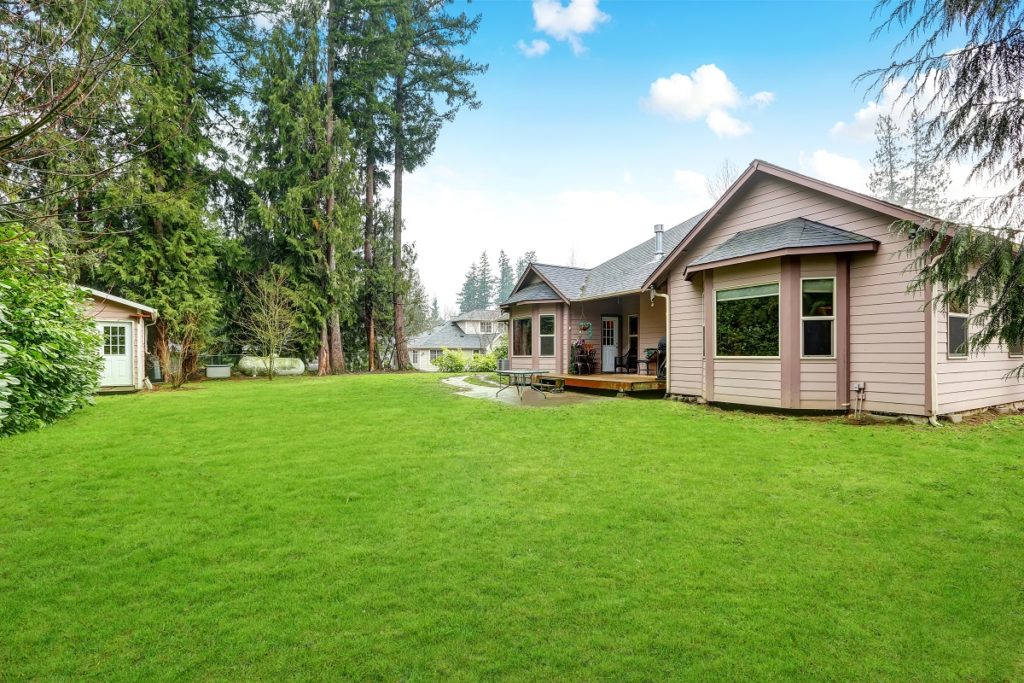- Researching the local area and examining surrounding properties before investing in residential rental properties is essential to ensure success.
- It is essential to consider the current property value and maintenance costs to ensure long-term success.
- To succeed in any residential rental property venture, assessing rental income potential is necessary.
- Property management fees must be considered from the project’s early planning stages to ensure success.
Investing in residential rental properties can be a beneficial way to produce passive income and create lasting wealth. But there are many things to consider when building your portfolio of rental properties. With proper planning and preparation, however, investing in residential rentals can be an excellent way to diversify your investments and achieve financial freedom.
Location

The location of a residential rental property is one of the most critical factors owners will need to consider for a successful investment. Not only does it affect the kind of tenants you attract, but it will also influence the ability to increase or maintain increased rental yields.
It is essential to evaluate potential sites carefully before purchasing suitable lands for sale with rental property potential. Factors such as population growth trends, amenities in the area, and public transport options can be invaluable when determining whether or not a piece of land is suitable for developing rental properties.
Furthermore, examining surrounding properties in the vicinity and investigating their past success can help owners make informed decisions regarding their future purchases. Reaching out to local real estate agents may prove beneficial as they often have specialist knowledge about what prospective sites are available and which ones may best meet your goals.
Rental Property Considerations
Here are some considerations you need to know when it comes to managing rental properties:
Property Value and Maintenance
It is essential to consider the current property value and maintenance costs. Adequate planning can ward off future financial issues while potentially increasing the return on investment. Without proper research into these factors, many costly problems may arise in the subsequent years as the property owner progresses.
By deep diving into market-based appraisals and projected maintenance expenses, owners can be assured that their foundations have been adequately established for a successful venture. This will boost confidence when attempting to secure financing for new real estate and provide peace of mind for those looking to purchase such properties as tenants.
Rental Income Potential
It would help if you considered the rental income potential of each piece of property. This is especially important when investing a large amount of capital, as rental income allows your return on investment (ROI) to remain healthy and helps ensure that your assets are worth the time and energy spent.
Accurately predicting the likely rental income level will help you decide which properties to purchase and renovate. It can also help you plan for essential tenant needs, set realistic expectations for vacancy rates, and weigh each property’s potential rewards versus risks.
Tenants/Leasing Management

Considering tenants/leasing management allows landlords to optimize their rental unit capacities and helps attract and retain quality tenants. It is essential to keep tenant satisfaction high by creating comfortable and secure environments and providing exceptional tenant services.
Offering amenities such as covered parking, additional storage areas, deck or common area access, and regular maintenance inspections can go a long way in ensuring that the property remains in good condition for its future occupants.
Property owners must also understand lease laws and ensure tenant policies are being observed consistently. Aspects such as rent increase notifications, late fee policies, maintenance protocols, and other tenant expectations should be clearly outlined before new leases are signed.
Property Management Fees
Considering property management fees to ensure your business is booming is important. Preparing an accurate budget for the overall build and ongoing costs associated with running a residential rental property requires an in-depth understanding of all the expenses that you may incur.
Property management fees are one of those expenses that should be considered from the project’s early planning stages. Depending on factors such as size and location, these fees can vary greatly, so it is essential to carry out thorough research ahead of time. Planning for this will help avoid any unexpected charges in the future and enable you to make sound decisions about the viability of your projects.
Vacancy Rates
Vacancy rates should not be overlooked. Properly accounting for vacancy rates is vital to achieving the desired rate of return. For example, if the expected rent income is overestimated due to an overly optimistic view on the local market’s vacancy rate then a lower actual return could be seen on the investment.
Therefore, it is important to research recent and current vacancy trends to make an accurate prediction of what potential occupancy and rent can be expected from a residential property. One should also consider any additional expenses or risks associated with owning residential rental properties such as taxes, building maintenance costs, or tenant turnover expenses.
These are just a few considerations that owners should consider when investing in residential rental properties. With proper planning and research, however, these investments can be an excellent way to diversify your portfolio and achieve financial freedom.

